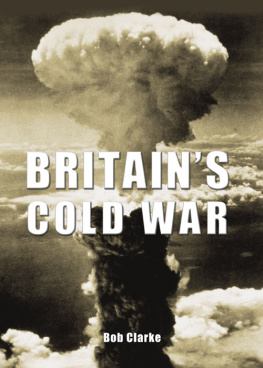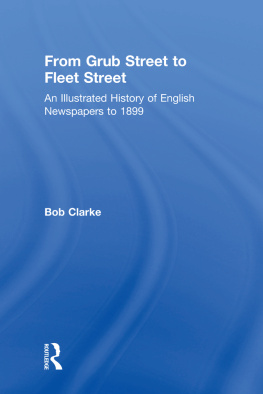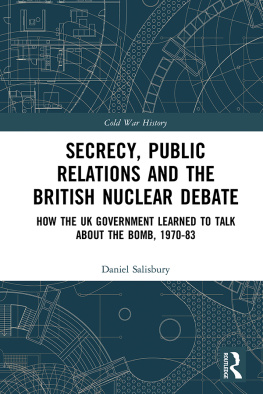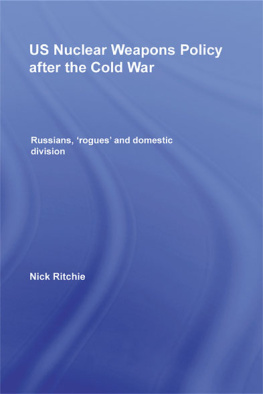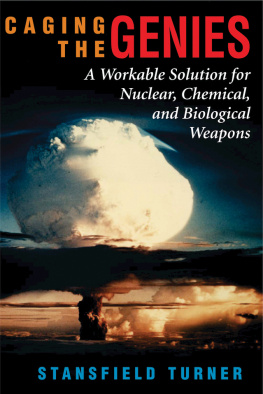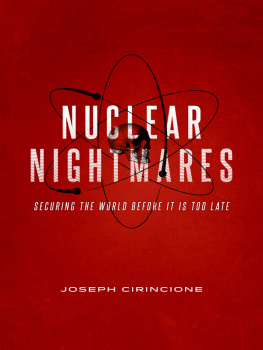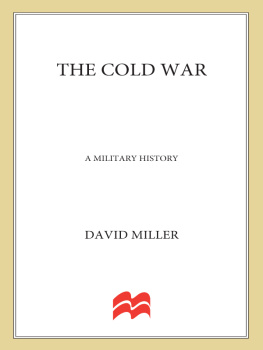Contents
Protect
Survive
This book would not have come to fruition had it not been for the enthusiasm and expertise of many of my colleagues and friends, I would like to thank them all. Thanks are also extended to all the organisations, representatives and individuals who have allowed access to the many sites visited in the last year.
Individual thanks go to the following: Michael Parrish of the Kelvedon Hatch Museum and Rodney Siebert of the Hack Green Museum; Chris Walker of the North Wilts Military Survey; Roy Canham, Wiltshire County Archaeologist; Nick McCamley, author of Cold War Secret Nuclear Bunkers, who helped solve some of the finer details; Bill Baker of the Avon Fire Brigade, who allowed access to the refurbished ROC Group HQ at Lansdown, Bath; the Scarborough Evening News for the splendid pictures of Fylingdales; Mike Fuller for flying the USAF airfields in difficult conditions, Liz Wild for access to the Reading War Room; Don Todd and Keith Watson for access and stimulating discussion at Upper Heyford; Debbie Edmonds of English Heritage; Kelvin at Country & Metropolitan for access to Becca Hall; Tony Peach and his band of merry Royal Observer Corps members long may they keep the flag flying!; Pete Sherburne and Jim Askew for their advice on military matters; Simon Hailwood, Senior EPO for South Gloucestershire Council; Michelle Dean, Community Safety Officer for West Oxfordshire District Council, and John Kelly, Oxford EPO; Erith Demolition for allowing access to the GCHQ Oakley site; and the owners of all those sites in the middle of nowhere who struggled to understand why I found concrete so interesting, but allowed me to photograph them anyway.
And last but by no means least, thanks go to my good friend and colleague Colin Kirby for putting up with my frequent absences during one of QinetiQ Archaeologys biggest projects; Barry Huntingford, who has met the task of reading the draft text with good humour and made the story of Britains Cold War legible; John and Christine Clarke for help with locating the Yorkshire sites and pictures; Campbell McCutcheon of Tempus Publishing Ltd for giving me the opportunity to put my thoughts down on paper; and finally Sarah and the kids who live in a house full to the roof with archaeology including now artefacts from the Cold War. A big thank you to everyone. If I have forgotten anyone, and thats highly likely, I apologise profusely. Any errors are ultimately my responsibility.
My Cold War
Growing up in Scarborough hardly sounds like the front line, but that was the point of the Cold War, it had the potential to include everybody. Very few traditional front lines actually existed with the obvious exceptions of the Berlin Wall and the 38th parallel and, of course, the Iron Curtain. Almost every area of Britain had one site or another which was deemed to be a potential target, and my part of the world was no exception. So, what was my Cold War? Well I was a child of the 60s with all the usual things a young lad wanted: a train set, Dinky toys, Thunderbirds (in fact anything Gerry Anderson!) and of course Airfix kits. By the mid-70s I had developed more than a passing interest in history, aircraft and war films; many of my models were eventually to become war casualties!
On moving to Grahame Secondary School on the outskirts of the town I came into contact with a number of like-minded individuals, joined the 739 Sqn Air Cadets and never looked back. From my house I could see RAF Staxton Wold to the south and Irton Moor listening post, known locally as the wireless station, to the north. Just up the road was the North Yorkshire Moors and situated prominently on it were the Golf Balls, so, as you can see, I was sitting right in the middle of some prime military targets.
Being a member of the Air Cadets opened up many of these sites as we witnessed first hand the Nations Defences. I still vividly remember our summer camp to RAF West Raynham in 1978, home of the impressive Bloodhounds. I even got to target a blip on the radar with the predictable shout, Dont push that one !, from the launch crew after I had done it, all to much hysterics. But we were the exception to the rule; nobody else seemed to acknowledge the fact that we were at war. This was one of the interesting phenomena of the Cold War, that it was treated by most as background noise to their everyday lives. I may be wrong but I cannot recall my parents ever talking about anything which we now see as significant, even if the IRA atrocities did feature occasionally, but apart from that life just ticked along.
Life was, however, punctuated by many low flying jets; the Vale of York was a designated flying area and we got the lot. Over the years the procession was as good as any air tattoo you could see today. Formations of Vulcans, occasionally four deep, Lightnings practising dog fights and even the prototype Tornado with its Phantom and Buccaneer escorts. The Americans were also much in evidence, F-111s often whipped down the Vale and the agile A-10s could always be relied on to put up a good display, especially for a group of lads on a country lane on their bikes. I can still feel the excitement of the display and the customary salute signing off the spectacle. We slept safe in our beds.
Many of us from 739 joined the services in the early 1980s at the height of the Doom Boom, not to fight the Warsaw Pact or become part of NATO but to have a career. Scarborough didnt offer much so we moved out. Pilots, commandos, radar specialists, engineers, we covered the whole spectrum. I have to say, from a personal perspective, ten years in the RAF did not give the impression we were at war with a superpower. Granted it was in the background and the occasional exercise or Tacival brought into sharp perspective the NBC threat but the main problem was home-grown terrorism. By the time I arrived at St Athan, my last posting, Spetsnas was just a distant memory, then the wall came down and everything changed, including my career. I left the RAF and went into civil aviation.
The events across Europe rekindled my interest in history; I had just witnessed one of the most significant periods of the twentieth century coming to an end. My wife and I spent the next two years visiting most of Eastern Europe; I needed to know what it had all been about. What we discovered was a world of second bests; by the time we got to Moscow the whole country was pretty much upside down. As we looked at Lenin, still guarded around the clock in his empty mausoleum, my mind wandered back to all those pictures of queuing Russians waiting in the snow for a glimpse of his hallowed remains. The world had indeed changed.
In 1994 two major events happened in my life: I became a father and I picked up a contract at Boscombe Down, six weeks worth and Im still there now! Two years later I had become a qualified archaeologist (something I had started years earlier) and part of the archaeological team on site. Since then I have investigated, with my colleague Colin Kirby, many aspects of Boscombe Downs archaeology, including the part it played in the Cold War. This has developed into a bit of an obsession, one that appears here in print as my view of the Cold War and Britains part in it.
The Cold War was like no other conflict yet experienced. It was more than a struggle between two superpowers, it was a war of ideologies, the capitalist West and the communist East. The Cold War leached its way into every facet of British life to the extent that it was not really considered a war at all. But a war it was; thousands died over the period 19451991 as the superpowers fought for supremacy, often by proxy, in Korea, Vietnam, Afghanistan, Angola and the Horn of Africa. Oppression also accounted for many lives in the uprisings in Czechoslovakia, Hungary, Poland, Lithuania, Latvia and those trying to cross the Berlin Wall. The period was punctuated by an arms race which pushed the world to the edge of destruction, as both East and West amassed arsenals of nuclear weapons far beyond what would be needed to destroy, quite literally, everything. So what part did Britain play in all this?

